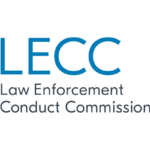NSW Premier Cuts Regulations for The Star Casino

There are fears the NSW government’s changes to casino regulations will open the floodgates to organised crime.
A total of 19 out of 20 independent inspectors and auditors have accepted voluntary redundancy following the creation of ‘Liquor and Gaming NSW’, which has taken over as the state’s regulator for casinos.
The inspectors had been permanently based at the Star Casino, with the ability to monitor operations around the clock, but the new regulator will only perform spot and targeted checks.
Government’s Justification
Liquor and Gaming NSW has justified the move on the basis that other States have also abandoned permanent in-house gaming inspectors, in favour of more cost-effective schemes.
A spokesperson for the new body went so far as to criticise the previous arrangement for leaving inspectors vulnerable to influence, although no evidence of any such corruption was offered.
Criticism
The former Chairperson of the now-dissolved Liquor and Gaming Authority, Chris Sidoti, says the changes carry the “inevitable” risk that organised crime will increase money laundering operations within NSW casinos.
“It’s unreasonable to expect that an inspector watching minors drinking in the local pub is also going to have the expertise to identify organised criminal activity in the casino,” Mr Sidoti added.
Casinos are a prime target for money laundering schemes, and a major role of the specialised inspection team had been to identify and stamp-out such activity.
Public Sector Association General Secretary, Anne Gardiner, believes the reduction in monitoring:
“… is potentially something that will lead to people seeing Sydney and our Casinos as a soft target’.
The new body is subject to the directions of NSW Justice Minister Tony Grant, raising questions about its independence and ability to properly carry out its functions.
Money Laundering
Those engaged in organised crime will often take steps to make it appear that the proceeds of their illegal activities are sourced legitimately.
They may do this by putting money through commercial entities such as companies and businesses whose records are then manipulated, or through the trust accounts of corrupt professionals or financial institutions, or through gambling machines and tables which make it seem that the monies extracted were lawfully derived.
Such money laundering activities are serious offences under both the NSW Crimes Act and Commonwealth Criminal Code Act.
For example, section 193B of the NSW Crimes Act makes it an offence to:
- Knowingly dealing with the proceeds of crime and attempting to conceal it; subsection 1 (maximum penalty of 20 years imprisonment,
- Knowingly dealing with the proceeds of crime – but not necessarily trying to conceal it; subsection 2 (maximum penalty of 15 years imprisonment), or
- Dealing with the proceeds of crime and being reckless to the possibility that you were doing so; subsection 3 (maximum penalty of 10 years imprisonment)
A wide range of money laundering-type offences are also contained in sections 400.3 to 400.9 of the Commonwealth Criminal Code Act, which carry maximum penalties of between 6 months and 20 years imprisonment.
Casinos as Hubs for Washing Money
The NSW Police Asian Crime Squad has previously criticised The Star for failing to prevent suspected criminals from laundering money.
But the problem is seen to be far greater in Victoria. It is alleged that Melbourne’s Crown Casino, with its lax monitoring arrangements, has allowed several major crime figures to launder hundreds of millions of dollars through its doors. The ABC’s 7.30 Report demonstrated the ease by which money is laundered at the Casino – suspected criminals simply buy substantial sums of chips, play for some time, then cash in the balance.
Linda Hancock, a researcher of Gambling Policy at Deakin University, believes the conduct of casinos is tantamount to facilitating and profiting from criminal activity:
“This is where casinos are part of the laundering system and they become the beneficiaries of the proceeds of crime. So when it’s found out, why don’t they have to give it back?” Ms Hancock asks.
Like many others, Ms Hancock fears that our State’s move away from permanent, independent, specialist inspectors towards what are essentially ‘spot checks’ will act as a magnet for organised crime figures.
The move may even lead some to conclude that the NSW government is more concerned about getting its slice of the pie than the crimes facilitated to produce that slice.






